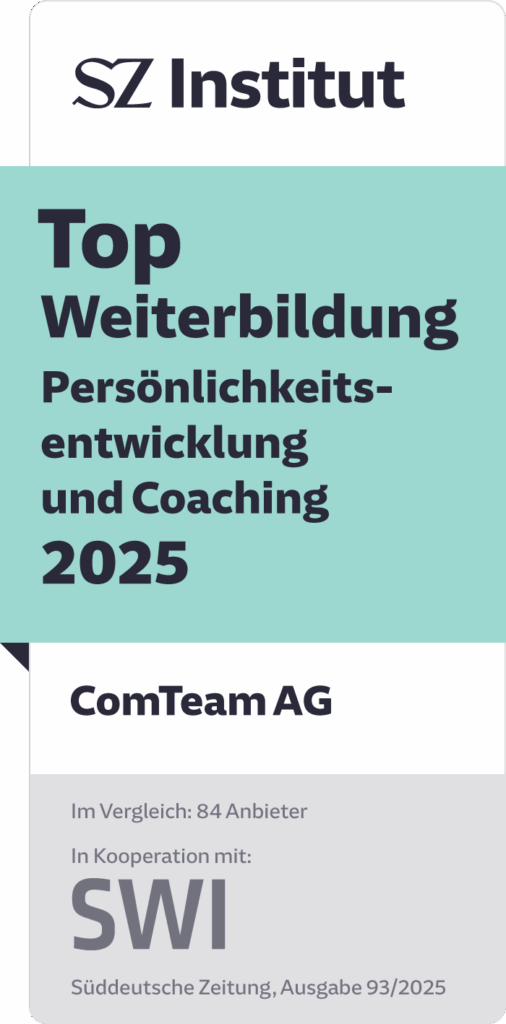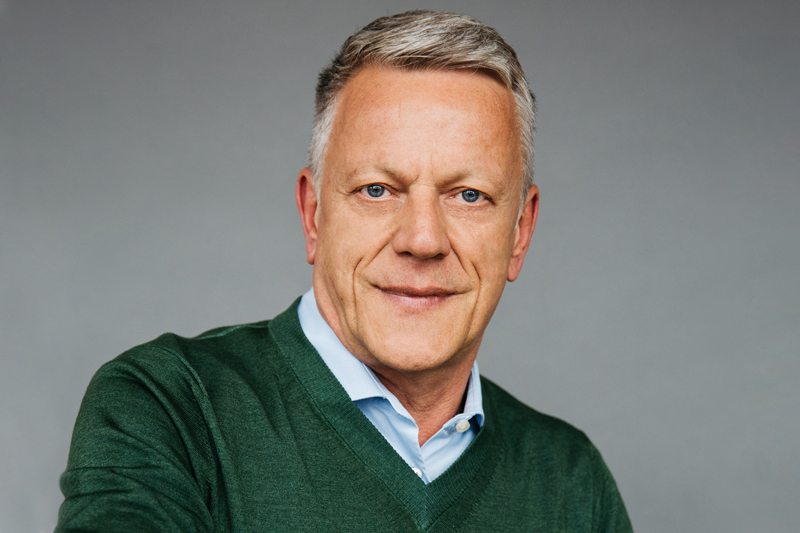That is your focus ...
Your are searching for ...
Excellent

Ausgezeichnet

Our fields of expertise
Discover
ComTeam AG | Academy + Consulting
Bergfeldstraße 11
83607 Holzkirchen, Germany


ComTeam AG | Academy + Consulting
Bergfeldstraße 11
83607 Holzkirchen, Germany
Impartial conflict resolution for sustainable working relationships
They can be healing and can advance processes and (work) relationships. Or they can become deadlocked. When two or more parties are in dispute and cannot find a solution, a ComTeam mediator can intervene. Without any vested interest, we work in conflict counselling in a pragmatic and solution-oriented way with all involved parties.
"Mediation creates solutions without losers. Our aim is to ensure that conflicts are not dead ends but lead to sustainable solutions for all parties involved."
Peter Kraushaar, Partner at ComTeam and head of our business coaching training programme
After clarifying the facts, we first contact the disputing parties, inform them about the procedure and the time required. If meetings are arranged, they usually take place at a neutral location. This can be in the premises of ComTeam or on-site. If there are developments in the clarification process, information about them, results, and agreed steps are communicated by the participants, for example, to the responsible manager.
Whether one appointment or several are needed often depends on the duration of the conflict: The longer a conflict has been simmering, the more time must typically be allowed for. In such cases, several meetings may take place. If the conflict is current and does not have a long history, it is often resolved in one meeting. Another factor is the number of participants: In team conflicts with many different positions, these can also influence the duration of the process.
Our declared goal in conflict counselling is to work together with the parties to re-establish a viable working relationship and to learn a different type of communication for everyday life. If needed, we as experienced ComTeam mediators are gladly at your side.
Conflicts are a part of our lives and are indispensable for moving things forward and “clearing the air.” However, some conflicts do not lead to solutions but to irreconcilable opposing positions: Then resources are wasted, and the dispute becomes a meaningless ritual.
This is where mediation can help. Solution-oriented, pragmatic, and allied with all parties, an external person can mediate.

The focus is on solutions and agreements that work. This is always successful when the mutual interest in a solution is greater than the benefit of the failure of the negotiations.
Mediation means working with the negotiating parties to develop solutions that create a “win-win situation.” The goal of the process is to find ways that are satisfying for all parties and can thus be effective in the long term.
The process helps the parties to recognize which interests, needs, motivations lie behind positions and thus to understand the other’s position. From recognizing interests and the respect for the other’s interests created by mediation, a basis for new solution ideas is created. This gives the parties the opportunity to move from the past to the future, from conflict to solution.
A mediator is neutral and impartial. There should be no self-interest in any solution. The goal is a result with which all parties agree. The mediator’s role creates trust among the participants and ensures equal speaking time. In addition, it organizes the process and structures the work on solutions. Mediators have no power and make no decisions.

Your contact for conflict counselling and mediation
Peter Kraushaar
I am happy to advise you on your current challenge: